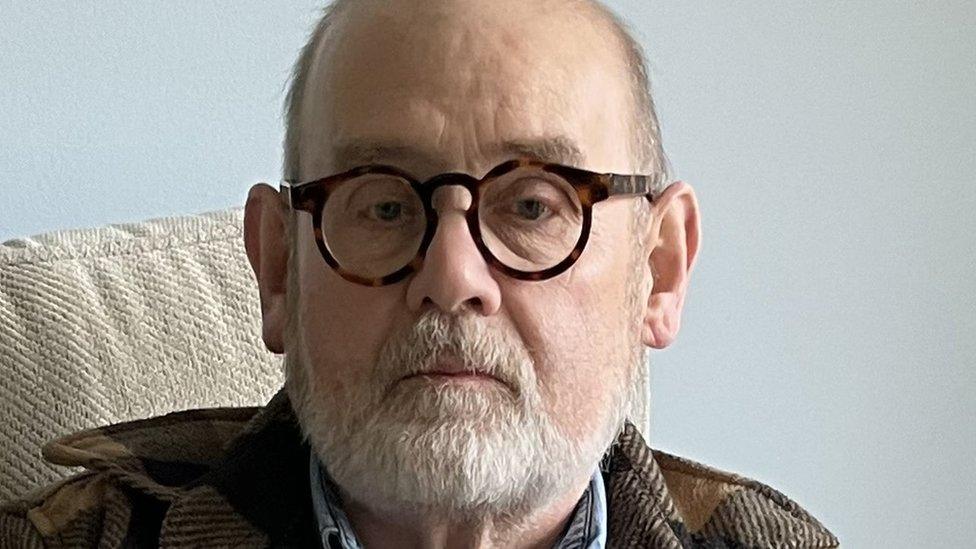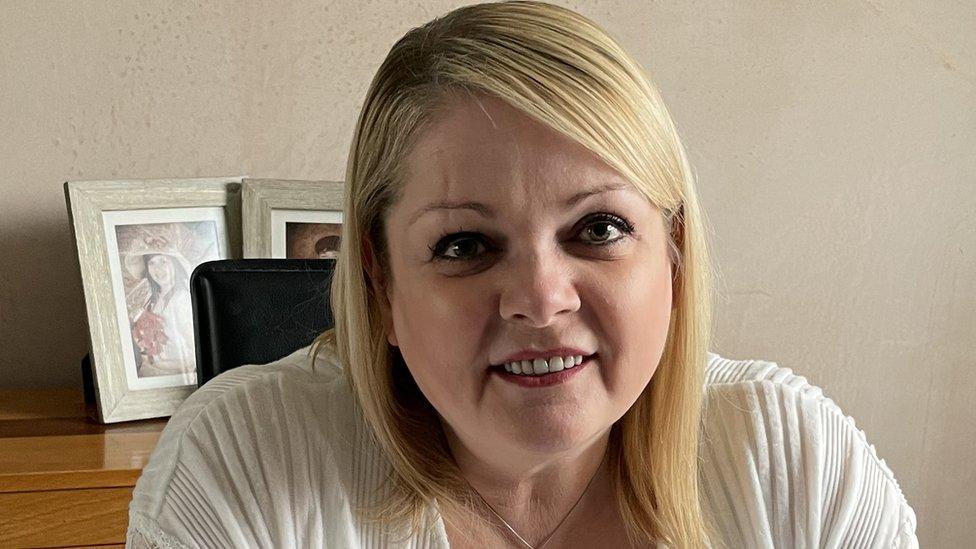Disabled people hit hard by rising energy bills
- Published

George Cook has kidney dialysis treatment at home three days a week
Rising energy prices will affect everyone, but disabled people and unpaid carers have told BBC Scotland they face additional struggles.
George Cook, a kidney patient who lives in Aberlour, Moray, has dialysis treatment at home three days a week - with the life-saving machine he uses adding to his already high electricity costs.
The former nurse suffered "complete renal failure" so the dialysis machine is vitally important for his survival.
He warns that increasing costs "could make a difference between either eating, heating or staying alive" for kidney patients.
The charity Kidney Care UK says even before April's price rises, people on home dialysis were paying between £590 and £1,450 per year due to extra electricity and water usage.
The employment rate for people on dialysis is just 26% - meaning many are already on low incomes.
But it is not just kidney patients worried about rising costs.

Lynn Pinfield suffers from a range of disabilities including MS
Lynn Pinfield, who suffers from a range of disabilities including MS, says she had "shivers" when she heard about the price increases.
Despite having loved her job as a PA, Lynn was told by her doctor that continuing to work was harming her health.
She says living on benefits was "the last place" she thought she would be.
"A lot of people with disabilities are perhaps at home a lot more, therefore the heating might be on, the electricity might be on longer than people who are at work all day," she says.
Lynn, who lives in Bathgate, says the price rises mean the amount she used to pay every fortnight might now only last a week, which she says is "very scary".
As a result, Lynn says she will have to cut back on things like Christmas presents for her children and grandchildren, and go to the shops late at night when food has been reduced.
"The last thing I want to do is get into debt because I know I'd never be able to pay it off. I'd rather turn off the electricity at night," she says.
Lynn's experience isn't an isolated one.
MS Society Scotland says that on average, people living with the condition face additional costs of between £600 and £1,000 a month, and that people are "already having to make impossible choices".

Alison Mallet, who is disabled herself, is also a full-time unpaid carer for her son Aiden
Alison Mallet, who is disabled herself, is also a full-time unpaid carer for her 23-year-old son Aiden who has a range of complex disabilities.
She told BBC Scotland that she is now having to choose between heat and food for her children, and that she can no longer afford to buy her son clothes or vitamin supplements.
"I'm already on their hardship fund and going to a foodbank, so I don't know what I'm gonna do," says Alison, who lives in Aberdeen.
"It's kind of like being in a hole that you can't get out of. Something that someone else dropped you into, and you just can't climb out."
According to a survey by Carers Scotland, 52% of unpaid carers are currently unable to manage their monthly expenses, while 87% think they will not be able to heat their homes to a safe level.
Meanwhile, research from Citizens Advice Scotland shows that disabled people are more likely to be in fuel poverty, which they say causes knock-on effects for those on prepayment meters such as not being able to keep a fridge on to store medicine.
Kidney Care UK, MS Society Scotland, Carers Scotland and Citizens Advice Scotland are all calling for more targeted funding to be given to those who are most exposed to the energy crisis.
In a bid to address the crisis, the Scottish government announced in February that households in council tax bands A to D, as well as those eligible for a council tax reduction, would receive a £150 payment.
They also announced an extra £10m targeted at people struggling with fuel bills.